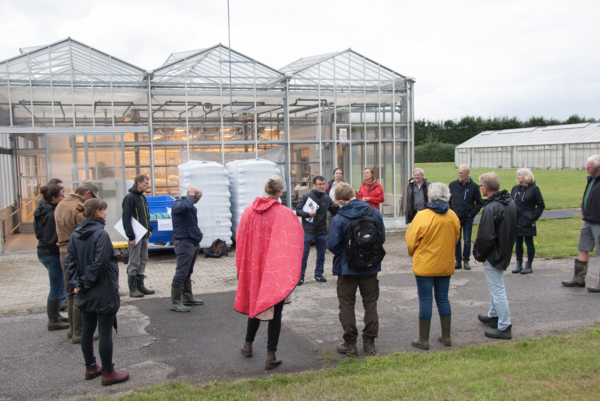Greenresilient project partners from Aarhus University, Department of Food Science hosted an experimental site visit August 27th. 19 participants, including several organic growers, met in Åeslev, Denmark, for a visit to the Greenreilients experimental site. Challenges for producers of organic greenhouse vegetables were discussed. In the view of participants, the main challenge within new European regulation is the restricted use of isolated beds and the restriction of nitrogen (N) fertilisers, not more than 170 kg of nitrogen per ha. The farmers in attendance considered this N level very low and discussed the potential consequences to the continuation and development of profitable organic vegetable production in Danish greenhouses. Respectively, the primary motivation of the Greenresilient project is to find alternative more sustainable solutions to address the new European regulation and make the organic greenhouse production possible and profitable for growers.
We found that under Danish conditions, light is the limiting factor. Leafy vegetables were hardly growing from late November until mid-February. The winter 2019/2020 was typical for Denmark with only a few hours of sun per day. Several leafy vegetables (e.g., pointed cabbage) showed very high variation between plants; thus, the conditions for good germination and seedling establishments were not appropriate. Therefore, the use of well-established seedlings can have an advantage for many crops. A few crops, like Mizuna, brown mustard, and winter purslane, can be sown with success in the presence of good seedbed preparation. Taking into account the long dark Danish winters and that light, rather than temperature, is a major limiting factor for winter vegetable production, LED lights were discussed as an opportunity to overcome this challenge.
In order to successfully adapt Danish organic horticulture to the new European regulation of organic cultivation of greenhouse vegetables, further testing of different species and optimisation of environmental conditions is suggested.

 tap and then scroll down to the Add to Home Screen command.
tap and then scroll down to the Add to Home Screen command.